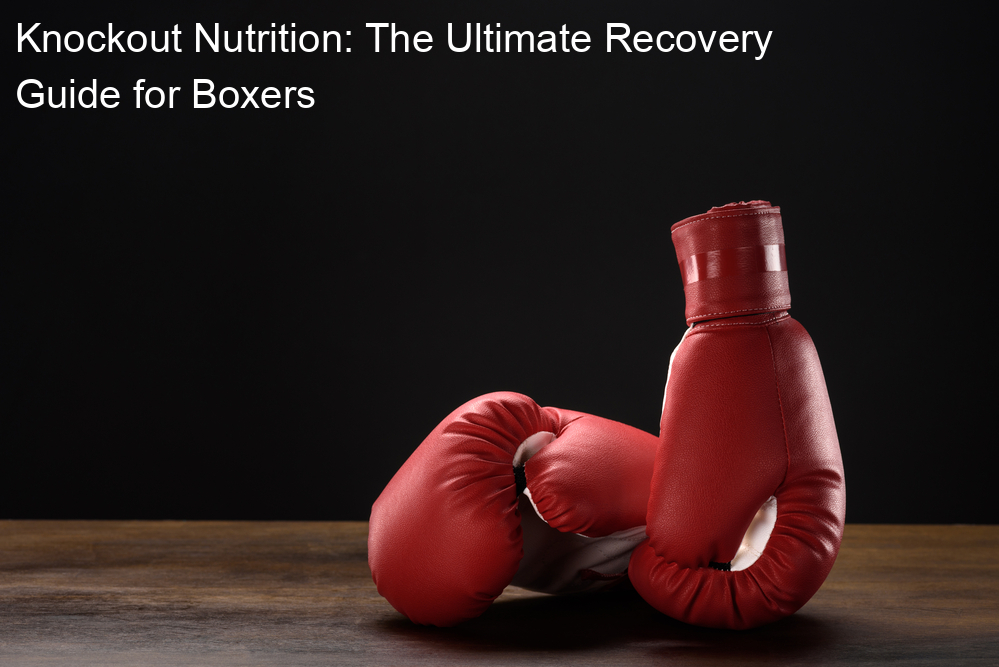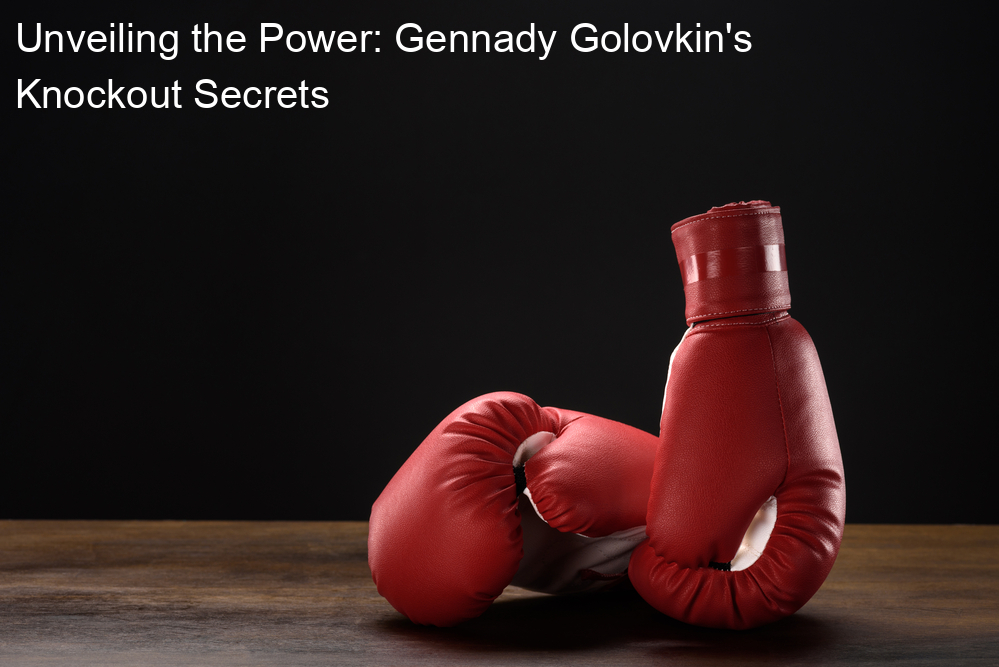Introduction to Boxing Nutrition
Boxing is a physically demanding sport that requires strength, speed, and endurance. To perform at their best, boxers need to fuel their bodies with the right nutrients. This is where boxing nutrition comes into play. Let’s delve into the importance of nutrition in boxing and provide an overview of a typical boxer’s diet plan.
- Importance of Nutrition in Boxing
- Overview of a Boxer’s Diet Plan
Nutrition plays a crucial role in a boxer’s performance and recovery. A well-balanced diet provides the energy needed for intense training sessions and helps repair and build muscles after workouts. According to a study, athletes who follow a nutrition plan have a 20% higher performance rate than those who don’t. In boxing, where every second counts, this can make a significant difference.
A boxer’s diet plan is designed to provide the right balance of carbohydrates, proteins, and fats. Carbohydrates are the primary source of energy, proteins help in muscle repair and growth, and fats are essential for hormone production and overall health.
Here’s a basic outline of a boxer’s diet:
| Meal | Food |
|---|---|
| Breakfast | Oatmeal with fruits and nuts, eggs |
| Lunch | Grilled chicken with vegetables, brown rice |
| Dinner | Salmon with quinoa, green salad |
| Snacks | Protein shake, fruits, nuts |
Remember, this is just a general guide. Each boxer’s diet plan may vary based on their specific nutritional needs and goals.
Boxing Nutrition Tips
Every boxer must grasp the importance of proper nutrition. It’s not just about keeping energy levels high, but also about speeding up recovery. Want to stay ahead in the ring? Let’s explore some meal plan suggestions for before you lace up those gloves.
Pre-Boxing Meal Plans
Before stepping into the ring, it’s essential to fuel your body with the right nutrients. Here are some key elements to include in your pre-boxing meal plans:
- Importance of Carbohydrates
- Protein Intake for Boxers
- Healthy Fats for Energy
Carbohydrates are the primary source of energy for your body. They are quickly converted into glucose, which your muscles use for energy. Consuming a meal rich in carbohydrates before a boxing match can provide you with the stamina you need to last in the ring. Foods like whole grains, fruits, and vegetables are excellent sources of carbohydrates. Learn more about carbohydrates here.
Protein is essential for muscle growth and repair. It helps in the recovery of muscles after a strenuous workout or boxing match. Including lean meats, eggs, and dairy in your pre-boxing meal can provide your body with the necessary protein. Find out more about protein here.
Fats are a concentrated source of energy. They provide the energy needed for long-duration activities like boxing. Healthy fats, such as those found in avocados, nuts, and olive oil, can be included in your pre-boxing meal for sustained energy. Read more about healthy fats here.
Remember, the right nutrition can make a significant difference in your boxing performance. So, plan your meals wisely and fuel your body with the right nutrients.
Post-Boxing Meal Plans
After a grueling boxing match, your body needs to recover. The right nutrition can speed up this process, helping you get back in the ring faster. Here are some meal plan tips to help you replenish your body after a match.
- Replenishing Nutrients After a Match
- Protein-Rich Foods for Muscle Recovery
- Hydration for Boxing Recovery
Boxing is a high-intensity sport that depletes your body’s energy stores. After a match, it’s crucial to replenish these nutrients to aid recovery and prepare for your next training session. Consuming a balanced meal rich in carbohydrates, proteins, and healthy fats within 30 minutes to 2 hours post-match can help restore your energy levels. Foods like brown rice, lean meats, and avocados are excellent choices.
Protein is a vital nutrient for muscle recovery. It helps repair the muscle tissues damaged during a boxing match. Consuming protein-rich foods like chicken, fish, eggs, and legumes after a match can speed up muscle recovery. A protein shake can also be a quick and convenient post-match recovery option.
Boxing can cause significant fluid and electrolyte loss through sweating. Rehydrating after a match is crucial to replace these lost fluids and maintain body functions. Drinking water is essential, but you should also consider beverages like coconut water or sports drinks that contain electrolytes. Remember, hydration is not just about drinking water; it’s also about replenishing lost electrolytes.
Don’t forget, we’re all unique and what suits one individual might not suit another. Paying attention to your body’s signals and tweaking your post-boxing nutrition accordingly is crucial. For tailored guidance, consider seeking advice from a nutritionist or dietitian.
Nutrition for Boxing Recovery
Ever wondered how boxers bounce back after a grueling match or intense training? It’s all about what they eat! Yes, you heard it right. The secret lies in their diet. So, what’s on the menu for these tough guys? Let’s dig into the food items that can help boxers recover faster.
Boxing Recovery Foods
There are certain foods that are particularly beneficial for boxing recovery. These foods provide the necessary nutrients that help the body to repair and rebuild muscles, replenish energy stores, and reduce inflammation.
- Protein-rich foods
- Carbohydrate-rich foods
- Fruits and vegetables for antioxidants
Protein is essential for muscle repair and growth. After a boxing session, your muscles are in need of repair, and protein provides the building blocks, known as amino acids, for this process. Foods like lean meats, fish, eggs, and dairy products are excellent sources of protein. Plant-based proteins such as beans, lentils, and tofu are also great options.
Carbohydrates are the body’s primary source of energy. Consuming carbohydrate-rich foods after boxing helps to replenish the glycogen stores in your muscles and liver, which get depleted during intense physical activity. Whole grains, potatoes, and fruits are good sources of carbohydrates.
Fruits and vegetables are packed with antioxidants, which help to reduce inflammation and speed up recovery. They also provide a variety of vitamins and minerals that support overall health and wellbeing. Berries, citrus fruits, leafy greens, and bell peppers are particularly high in antioxidants.
Remember, proper nutrition is just as important as training when it comes to boxing. By incorporating these recovery foods into your diet, you can ensure that your body has the nutrients it needs to recover and perform at its best.
Hydration for Boxing Recovery
Hydration plays a crucial role in the recovery process for boxers. It’s not just about quenching your thirst, but also about replenishing the fluids lost during intense boxing sessions. Let’s delve into the importance of water intake and effective rehydration strategies.
- Importance of Water Intake
- Rehydration Strategies
- Drink Water Regularly: Don’t wait until you’re thirsty to drink water. Make it a habit to sip water throughout the day, especially before, during, and after your boxing sessions.
- Use Electrolyte Drinks: These drinks contain sodium and potassium, which are lost in sweat. They can help replenish these essential electrolytes and speed up recovery.
- Eat Water-Rich Foods: Foods like cucumbers, watermelon, and oranges are high in water content and can contribute to your hydration.
Water is a vital component of our bodies, making up about 60% of our body weight. For boxers, it’s even more critical. During a boxing match or training, boxers lose a significant amount of water through sweat. This loss can lead to dehydration, which can impair performance and slow down recovery. According to a Wikipedia article on dehydration, even a 2% decrease in body water can lead to a noticeable decrease in physical and mental performance.
Rehydrating after a boxing session is not just about drinking water. It’s about replenishing the electrolytes lost in sweat, too. Here are some effective rehydration strategies:
Keep in mind, hydration isn’t only crucial during the game, but also for the best recovery. So, are you drinking plenty of water and employing smart rehydration methods?
Nutritional Supplements for Boxers
Ever thought about the secret behind a boxer’s power-packed performance? It’s all about the fuel – the right kind of food and supplements. Besides a well-rounded diet, there are certain nutritional boosters that can help our ring warriors bounce back quicker and pack a stronger punch. Curious to know what these are? Let’s dive in:
- Protein Supplements
- Vitamin and Mineral Supplements
- Pre-workout and Recovery Supplements
Protein is essential for muscle growth and repair. After a tough boxing session, your muscles need protein to recover and grow stronger. Protein supplements, such as whey or plant-based protein powders, can provide a quick and convenient source of this vital nutrient. According to a Wikipedia article, the recommended daily intake of protein for athletes can range from 1.2 to 2.0 grams per kilogram of body weight.
Vitamins and minerals play a crucial role in energy production, bone health, immune function, and many other bodily processes. Boxers, due to their high level of physical activity, may need more of certain vitamins and minerals than the average person. Supplements can help fill any nutritional gaps in their diet. For instance, Vitamin D and Calcium are important for bone health, while Iron is needed for energy production.
Pre-workout supplements can help boost energy and performance during training, while recovery supplements can aid in post-workout muscle repair and recovery. Common ingredients in pre-workout supplements include caffeine for energy, beta-alanine for endurance, and creatine for strength. Post-workout or recovery supplements often contain amino acids like BCAAs, which help to repair muscle tissue and reduce muscle soreness.
Just a friendly reminder, while adding supplements to your routine can be a good thing, they shouldn’t take the place of a well-rounded diet. Always make sure to have a chat with a healthcare expert or a dietitian before you start popping any new supplement pills, okay?
Healthy Eating for Boxers
For fighters, a balanced diet is as essential as their rigorous workout routine. Proper food intake can boost their abilities, hasten healing, and ensure they’re always fight-ready. Shall we discuss how to craft a nutritious meal plan for our ring champions?
Creating a Balanced Boxer Diet Plan
A balanced diet for a boxer should include a mix of proteins, carbohydrates, and healthy fats. Each of these nutrients plays a vital role in a boxer’s performance and recovery.
- Protein Intake for Boxers
- Carbohydrate Intake for Energy
- Healthy Fats for Endurance
Protein is essential for muscle repair and growth. After a rigorous boxing session, muscles undergo wear and tear. Consuming adequate protein helps in repairing these muscles, promoting growth and strength. Boxers should aim for 1.2 to 1.7 grams of protein per kilogram of body weight daily. Good sources of protein include lean meats, fish, eggs, and plant-based proteins like lentils and chickpeas.
Carbohydrates are the body’s primary source of energy. They fuel the body during high-intensity workouts and replenish energy stores post-workout. Boxers should aim to consume around 3 to 5 grams of carbohydrates per kilogram of body weight daily. Whole grains, fruits, and vegetables are excellent sources of carbohydrates.
Fats are a concentrated source of energy. They provide the energy needed for long-duration training sessions and help in the absorption of certain vitamins. Boxers should aim for about 20% to 35% of their daily calories from healthy fats. Avocados, nuts, seeds, and fatty fish like salmon are good sources of healthy fats.
Remember, a balanced diet is key to optimal performance and recovery in boxing. Always consult with a nutritionist or dietitian to create a diet plan that suits your individual needs and goals.
Nutrition Advice for Boxers
- Importance of Meal Timing
- Benefits of a Varied Diet
- Importance of Hydration
Meal timing is crucial for boxers. Eating at the right times can help maintain energy levels, improve performance, and aid in recovery. For instance, a boxer should eat a balanced meal 2-3 hours before training to provide energy. After training, a meal rich in protein and carbohydrates is essential to replenish energy stores and repair muscle tissue. Nutrient timing is a key aspect of a boxer’s nutrition plan.
A varied diet is beneficial for boxers as it ensures they get a wide range of nutrients necessary for optimal performance. Different foods provide different nutrients, and a varied diet can help meet the nutritional needs of a boxer. For example, lean meats provide protein for muscle repair, fruits and vegetables offer vitamins and minerals for overall health, and whole grains supply carbohydrates for energy. A healthy, varied diet can contribute to a boxer’s success in the ring.
Hydration is vital for boxers. Dehydration can lead to decreased performance, fatigue, and even serious health risks. Boxers should drink plenty of water throughout the day, especially during training sessions. Rehydrating with a sports drink can also help replace electrolytes lost through sweat. Remember, if you’re thirsty, you’re already dehydrated. Proper hydration is a key component of a boxer’s nutrition and recovery plan.
Conclusion: The Ultimate Recovery Guide for Boxers
As we conclude this all-encompassing guide on top-notch nutrition for our ring warriors, let’s take a quick trip down memory lane and revisit the essential nuggets of wisdom we’ve shared. These pearls of wisdom are vital for any pugilist looking to enhance their performance and speed up recovery with a balanced diet, sufficient water intake, and smart use of nutritional boosters.
- Recap of boxing nutrition tips: A boxer’s diet should be rich in carbohydrates for energy, proteins for muscle growth and repair, and healthy fats for sustained energy. Meal timing is also crucial, with a focus on pre-boxing and post-boxing meals. Post-match, it’s essential to replenish nutrients and fluids to aid in recovery.
- Importance of a balanced diet and hydration: A balanced diet is the cornerstone of a boxer’s nutrition plan. It provides the energy needed for training and muscle repair. Hydration, too, plays a vital role in a boxer’s performance and recovery. Adequate water intake and effective rehydration strategies can prevent dehydration and optimize recovery.
- Role of supplements in a boxer’s diet: Supplements can be beneficial for boxers, aiding in muscle growth and repair, filling nutritional gaps, and boosting energy. However, they should not replace a balanced diet. Always consult with a healthcare professional before starting any supplement regimen.
In conclusion, nutrition is a critical component of a boxer’s training and recovery regimen. A well-balanced diet, adequate hydration, and the right supplements can significantly enhance a boxer’s performance and recovery. Remember, every boxer is unique, and what works for one may not work for another. Therefore, it’s essential to tailor your nutrition plan to your specific needs and goals.
Remember the wise words of the legendary Muhammad Ali, “It’s not the mountains ahead to climb that wear you out; it’s the pebble in your shoe.” In the world of boxing, that pebble can be your nutrition. Get it right, and you’re halfway to wearing that championship belt. Sound good?






